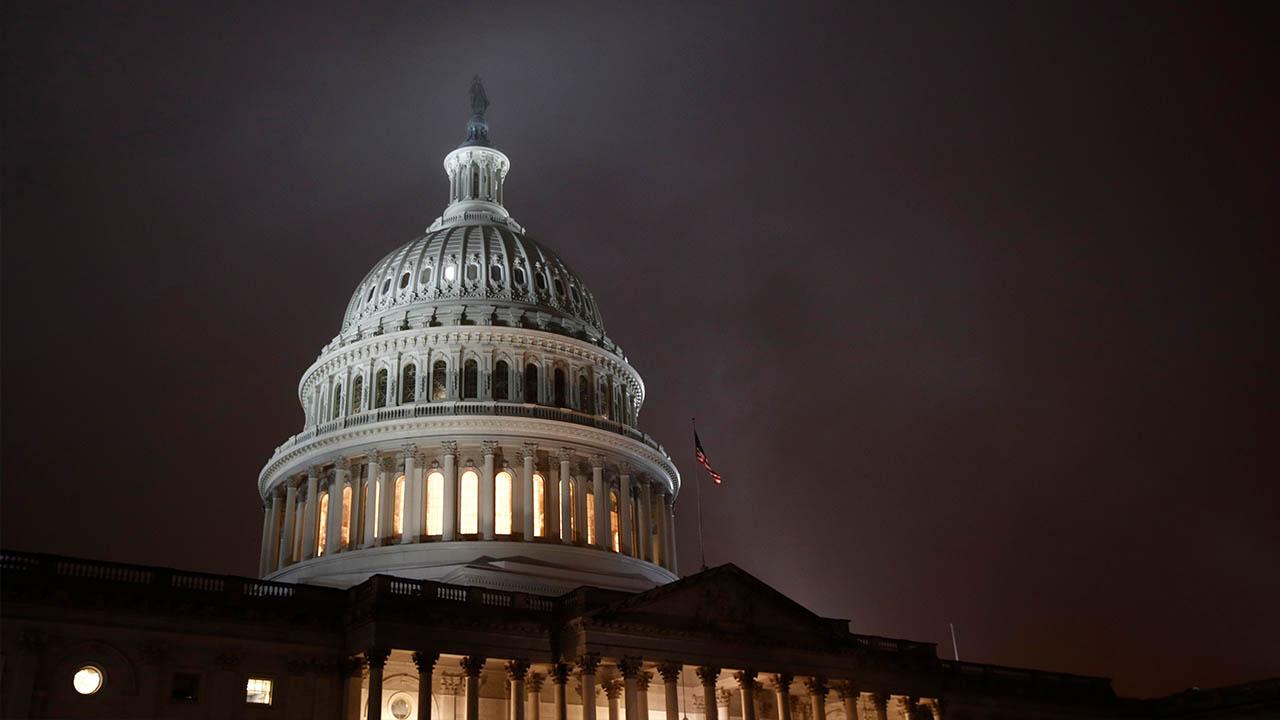Retirement reform: Key SECURE Act provisions that will affect you
Congress act could offer 401(k) to small businesses, part-time workers
FOX Business' Kristina Partsinevelos reports on how Congress aims to pass 401(k) changes including small business packages and part-time worker eligibility.
Lawmakers are preparing to pass comprehensive retirement reform, which would give more people access to retirement accounts, for the first time in more than a decade, with the aim of helping Americans save enough to live comfortably throughout their older years.
The Setting Every Community Up for Retirement Enhancement, or SECURE, Act is tied to a bipartisan spending bill that Congress must pass in order to sidestep a government shutdown at the end of the week.
The legislation contains a number of provisions that experts believe could meaningfully help Americans stash away more money, but also some that are perceived as negative for taxpayers.
"It [is] quite a comprehensive bill," Chad Parks, founder and CEO of Ubiquity Retirement + Savings, told FOX Business. "I think that the best way to characterize this is, it’s kind of cleaning house … [Lawmakers] knew they had all these little things that are not quite right."
HOUSE’S $1.4T SPENDING BILL IS ‘REALLY IRRESPONSIBLE’: CRFB PRESIDENT
One of the key parts of the legislation is that it aims to increase access to retirement plans, which is among the biggest savings barriers right now. The government will give tax credits to small businesses for having plans.
"The government is paying you to put a retirement plan in place," Parks said.
The tax credit expires after three years.
The bill would also make it easier for companies to band together to offer multi-employer plans. Some businesses would be required to allow some part-time workers to participate.
Multi-employer plans are currently available, but the legislation would change one significant rule that might encourage more businesses to participate. The so-called "one bad apple" rule refers to the fact that if 10 employers go into a plan together, and one person doesn’t follow the rules, the whole group will suffer. Now, Parks said, businesses would be allowed to outsource two fiduciary rules to address that dilemma.
In order to help Americans stretch out retirement savings over their lifetime, the plan also calls for an annuity option in retirement plans, which are fixed sums paid out over a lifetime.
John Iammarino, the principal and founder of Securus Financial, told FOX Business the annuity option is particularly important since future retirees won't have a pension like their parents and grandparents.
What's in the nearly $1.4-trillion spending bill approved by the House
FOX Business’ Hillary Vaughn reports on the House-approved nearly $1.4-trillion spending bill. Then, O’Shares ETFs chairman Kevin O’Leary, FOX Business’ Trish Regan, Kaltbaum Capital Management president Gary Kaltbaum and FOX Business’ Kristina Partsinevelos discuss the losers and winners of the bill.
"It doesn’t matter how much money you have if you don’t turn it into a predictable lifetime income stream," Iammarino said. "The annuity option [gives people] the ability to have a predictable income stream and helps alleviate some of that pressure from Social Security."
Another pair of provisions target the flexibility of accounts: People would be allowed to stash money into IRA accounts beyond the current age limit of 70 1/2. It would also delay when individuals are required to begin taking required minimum distributions to 72, from 70 1/2.
Iammarino said raising the contribution threshold will have that significant of an impact on most people, but delaying the age at which individuals would be required to withdraw funds from their accounts allows for nearly two extra years of planning and delays potentially being pushed into a higher tax bracket.
Among the changes that could be negative for retirees is the elimination of stretch IRAs. The proposal stipulates that most non-spouses who inherit an account must drain it within 10 years of the owner’s death, while the current law allows them to stretch it out over a lifetime.
Stretch IRAs are an estate planning strategy that allows people to pass their retirement funds to their kids, grandkids or other beneficiaries. For example, a child, who inherits money held in a parent's retirment account, under current law, can allow that money to grow tax-deferred or tax-free over the course of a lifetime and that beneficiary can take smaller required minimum distributions along the way, which is based on age and life expectancy. Those distributions, however, are subject to income taxes. Since larger distributions will need to be made during the 10-year timeframe, the tax liability could be larger.
"If you are leaving money then you might want to have some different plans … You could be making the IRS your biggest beneficiary," Iammarino said.
GET FOX BUSINESS ON THE GO BY CLICKING HERE
Overall, however, experts are optimistic about what lawmakers are trying to accomplish.
"At the end of the day, today’s retirement is on the employee," Iammarino said. "I don’t think the bill’s going to have an overall impact on people’s ability to save, but I do think people over the long haul will be happier in retirement with their annuity option."
The SECURE Act is attached to a package of spending bills that lawmakers need to pass by Friday in order to avoid a government shutdown. The retirement bill itself passed the House by a margin of 417-3 in the spring, but progress had stalled in the Senate.





















